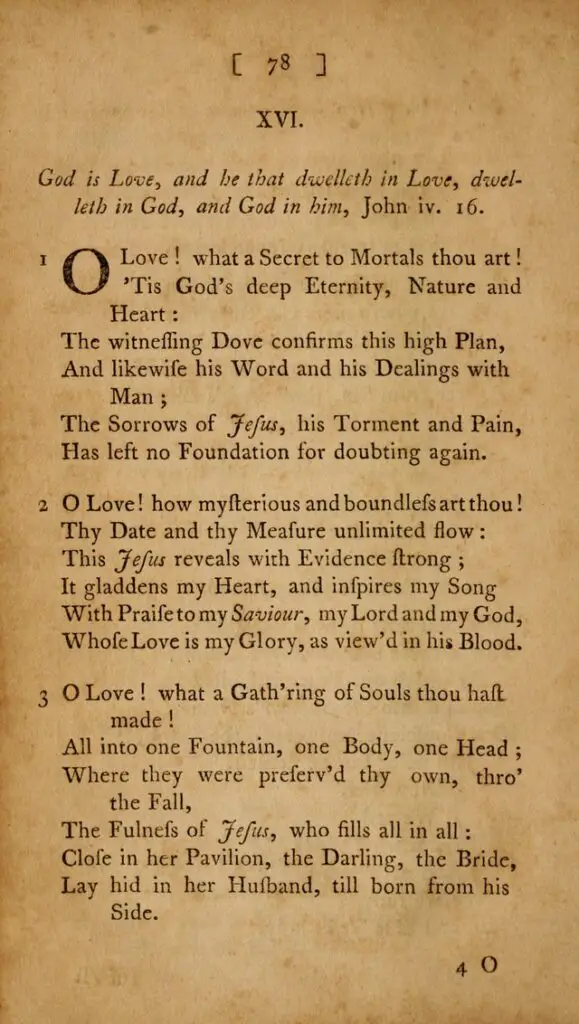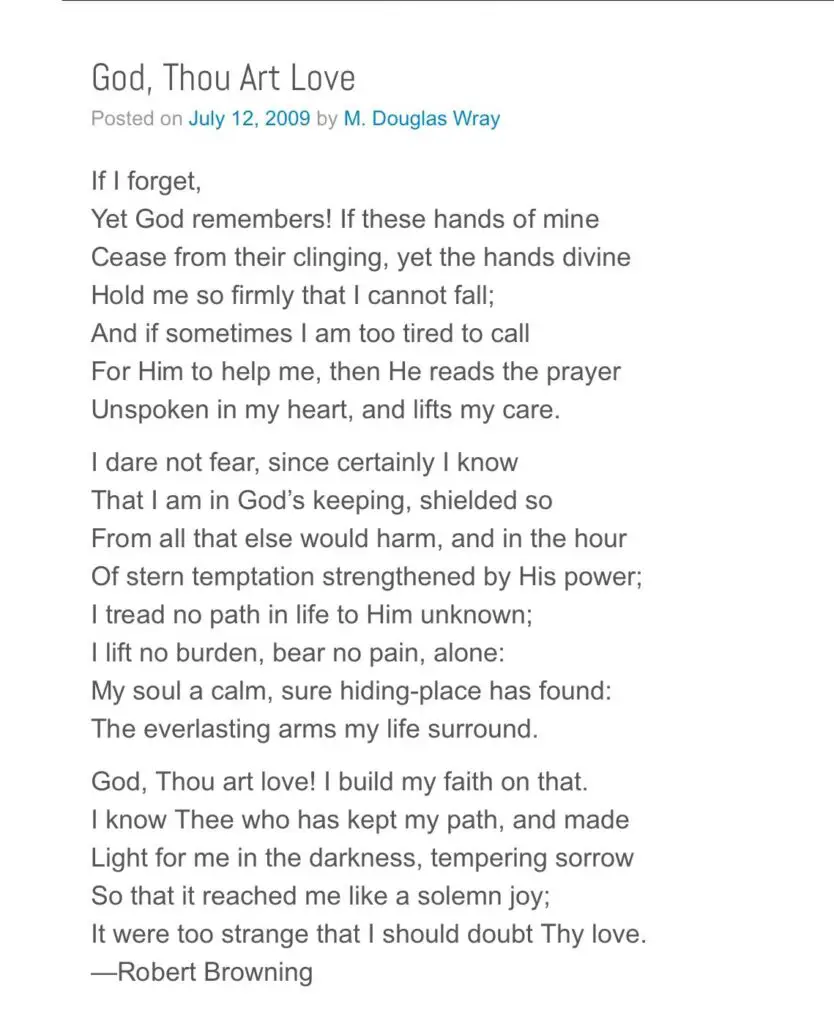“God, Thou Art Love” is one of his famous poems which is written on God. God thou art love is Robert Browning’s poem.
When was God Thou art Love by Browning written?
Approximately it was written between 1845 to 1855. The specified year of publishing can not be found. This poem is written dedicated to the god and the title, “God, thou art love” also symbolizes that.
The poem is divided into three stanzas. The title says of God’s act of love and it open the poet’s faith, love, and respect to God.
God Thou art love lyrics

Explanation of the Poem
When the poem begins, Browning is uttering that if he forgets to remember God then what will happen. If poet’s hands cease from their clings then what will happen.
Here in the first two lines poet just thinking of the fact that if he forgets to remember God and his hands get ceased then what will happen. Then he, himself answering that his hands are caught by Devine power.
God is holding the hands of poets so firmly that he never falls. Maybe he is trying to say that God’s blessing will let the poet fall.
“And if sometimes I am too tired to call
…then He reads the prayer”
From the first paragraph poet’s faith in God spontaneously coming out to the reads. He is saying if ever he gets busy and forgets to call God then God will obviously read the poet’s mind and will take his prayer.
He does not need to show his love towards God because he would be reading the poet’s prayer.

In the second stanza, the poet is speaking he does not fear anyone because he certainly knows that he is in God’s keeping and God is looking after him. No one can harm Robert Browning because he is in the shelter of God.
Maybe here the poet is addressing Jesus Christ as God. poet explained his feelings that God Thou art love he builds his faith on that.
According to the poet, God is the only superhuman who has strength and he is saving everyone. He is making everyone strengthened by his own power.
God Thou art love I build My faith on that
Poet believes god very much and he states he never destroyed a path of life that his loving God does not know. So, God becomes a heroic figure to the poet and in the poem too.
Poet’s strong belief in his God makes him feel free and he says,
“I lift no burden, bear no pain, alone:”
Here poet’s motif is to say that Browning’s emotion, sadness, happiness, and others that happen to him that all face God. God snatched his pain, loneliness everything from him. For these, all poet’s soul is getting calm, filled with peace.
“The everlasting arms my life surrounded”
This line addressing that God’s invisible arms are surrounded in the life of Rober Browning. Poet can feel this absence presence. The second stanza of the poem is very significant for the vision of the poet.
Here he made the figure for himself and portraying all the goods of God. He is not talking about himself and he is also making people aware of the fact of God.
“God, Thou art love! I build my faith on that.”
Poet is speaking that he want to spend everything of his life for God and his in his art love poet is melting himself. The faith of Robert Browning comes to the readers. Then these very last lines open the feelings of poet for his God.
“I know Thee who has kept my path, and made
Light for me in the darkness…”
So objectified lines these are. He knows God shows him the way and gives light in the darkness. Poet’s mind now getting free from the emotions, human misery because he finds the true way of life.
Now the poet’s heart is reached to the solemn joy. He finds the path of life and God is holding him.
“It were too strange that I should doubt Thy love.”
These lines prove that he had doubts in the past about the existence of God. And it has become shameful to himself as in the present time he can feel God.
Concept of the Poem, God, Thou Art Love
Here in the poem, Browning has created an image of God. This is addressing Jesus Christ, a symbol of Christianity. The poet is a Christian and that is why Christianity comes out from every part of the poem.
Though there is no straight religious view critics found some religious concepts from this poem. There is no specific rhyme scheme but the first stanza is written in “aabbcc”.